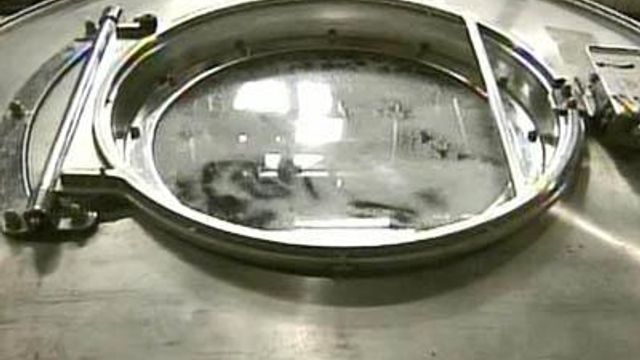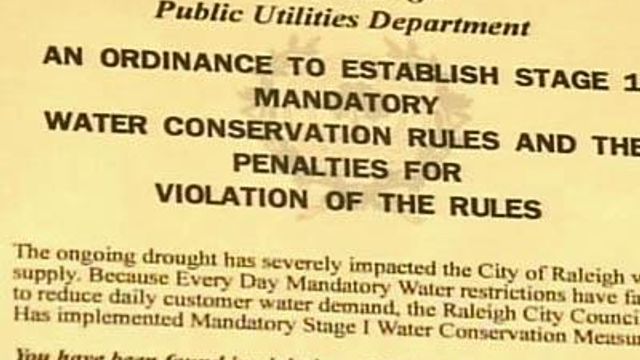Raleigh Pushes Businesses, Small Towns to Save Water
Raleigh officials have started pushing for more water conservation by local businesses. Meanwhile, some city officials want area towns to enforce water restrictions more tightly.
Posted — UpdatedMeanwhile, some city officials want area towns that buy water from Raleigh to enforce water restrictions more tightly.
The city's "Stage 1.5" restrictions, which were implemented two weeks ago, were designed to spare businesses that depend on water any adverse impacts. The rules banned sprinklers for outdoor watering and personal washing of cars.
Ed Buchan, water conservation specialist with Raleigh's Department of Public Utilities, is meeting with the city's top commercial water users, including WakeMed and the Wake County school system, and has asked them to submit detailed conservation plans to help the city cope with the ongoing drought.
"We're sort of taking stock of what they have done and what they can do for us," Buchan said. "What we'd like to see them do is actually implement (a conservation plan), that they are following through and they can report that to us."
The school district, for example, has promised to stop irrigating all athletic fields.
But the effort isn't backed up by any city ordinance, so city officials are relying on businesses to cooperate and conserve voluntarily.
"It's not citeable under our current ordinances, but we believe they will be responsible," City Manager Russell Allen said. "We all need to work together – both our citizens and business – to make sure we are prepared to go through these drought periods."
Alsco Textile Cleaning Co. is trying to do its part to conserve water, General Manager Chris Strickland said. The company used about 166,000 gallons of water daily before the drought and has trimmed that to about 102,000 gallons a day, he said.
"We decided to take steps before someone came (and forced us). So, we took those steps. We've cut out our second shift and reduced the gallons of water. We're surprised we cut could cut that much," Strickland said.
"To stay in business, we all have to conserve and help one another," he said.
Raleigh officials said they also would like to see more help from some area towns that buy water from the city and must adhere to its restrictions.
Since Raleigh put its water restrictions in place in late August, city inspectors have issued 295 violation notices. First-time violators are fined $200, and a repeat violation brings a $1,000.
No one has yet had a third violation, which results in the termination of water service.
Wake Forest water customers have been cited 48 times, and Garner has issued 27 violations. At the other end of the scale, Rolesville has issued three violations, Zebulon two and Knightdale and Wendell one each.
"We're not doing a good job of enforcement across our service area," Raleigh City Councilwoman Jessie Taliaferro said. "Statistically, it wouldn't work that way. You would have more violators than that."
The city needs more inspectors patrolling for water violators and should have a 24-hour hotline for people to report violations, Taliaferro said.
Allen said he doesn't support the idea of a 24-hour hotline, and he has no plans to hire any more inspectors.
"Those are fairly small systems," he said of the four towns that have combined for eight violations. "I think that in small communities messages get out, too."
Allen cited a reduction in overall demand as a signal that conservation efforts are working.
"That's where you measure success – not simply in how many violations or citations you issue – so that's where we've focused our work," he said.
• Credits
Copyright 2024 by Capitol Broadcasting Company. All rights reserved. This material may not be published, broadcast, rewritten or redistributed.






